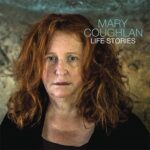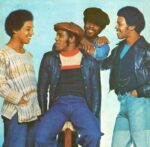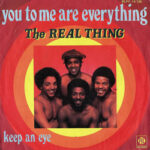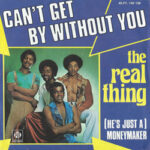 2020 might be the worst year in the modern era for live music, but we’ve had some cracking albums released, particularly over the last few weeks. Ben Bedford’s “Portraits” is no exception; it’s a collection of twelve powerful songs spanning folk, country, tex-mex and rock styles that will pull your emotions in every direction before coming to a resolution with the album’s final song, “Goodbye Jack”, a rousing tribute to the hard-living author Jack London. Ben Bedford’s a storyteller with a great grasp of narrative and a knack of pulling out historical themes with contemporary relevance.
2020 might be the worst year in the modern era for live music, but we’ve had some cracking albums released, particularly over the last few weeks. Ben Bedford’s “Portraits” is no exception; it’s a collection of twelve powerful songs spanning folk, country, tex-mex and rock styles that will pull your emotions in every direction before coming to a resolution with the album’s final song, “Goodbye Jack”, a rousing tribute to the hard-living author Jack London. Ben Bedford’s a storyteller with a great grasp of narrative and a knack of pulling out historical themes with contemporary relevance.
The songs on “Portraits” aren’t new, although they haven’t been released in Europe; the selection has been curated from Ben’s first three albums “Lincoln’s Man”, “Land of the Shadows” and “What We Lost”, spanning the period 2007 to 2012. The quality of the songs and the common narrative themes create an album that feels like the songs were all written specifically for this project. It works perfectly.
The album’s opening song, “Lincoln’s Man” is pretty representative of the album. It’s a strong narrative; the story of a man from the Confederacy who fought for the Union side in the American Civil War. It’s a long story, clocking in at over eight minutes, dealing with the universal themes of loyalty, family and conscience and contains echoes of the divisions visible in the USA today. The backing is stripped back to mainly acoustic guitar, banjo and occasional cymbal, which focusses the attention on the story and the wider context of the military detail; imagine the writing of Gordon Lightfoot and the delivery of Harry Chapin. This isn’t the only song exploring the military experience on the album; “Twenty One”, with its string band arrangement and harmonium, tells the story of an enlisted farmhand who can only see the destruction that is the inevitable consequence of the war.
Another couple of songs immediately suggest historical parallels and the way in which we refuse to learn lessons. “Migrant Mother” powerfully evokes Steinbeck’s “Grapes of Wrath” set during the Great Depression and reminds us that economic migration at the low end of the wage scale is not a novelty, while the gently finger-picked “Land of the Shadows” retells the story of the 1955 lynching of Emmett Till for offending a white woman in a Mississippi store. His killers were acquitted; any of this sound familiar? These songs were written in 2007 and 2009 respectively but have an eerie resonance in 2020.
If this is beginning to sound a bit morbid and gloomy, let me point you in the direction of “Amelia”, a soaring celebration of the determination and courage needed to undertake Amelia Earhart’s triumphant 1928 transatlantic flight. The rapid acoustic finger-picking conveys the sense of motion as the plane slices through the air and the uplifting chorus highlights the achievement against the sexism which is still with us.
Ben Bedford comes from a long line of troubadours in the folk tradition, exploring eternal themes through old stories and new stories, and creating moving and thought-provoking songs linking the present with the past. This curated selection of songs from around ten years ago feels more relevant than ever in 2020.
“Portraits” is released in the UK on Cavalier Recordings (CR 255626) on Friday September 4th.
 “Twang”; simple, it does what it says on the tin. OK, front cover, but you know what I mean and, actually, it does quite a lot more than it says on the tin. The twang is certainly present, but there’s a lot more to this album than Dick Dale influences. “Twang” is much more than surf or surf-punk. James Oliver pulls in many more guitar influences including Elmore James, Chuck Berry, Link Wray, Mick Green, Wilko Johnson and George Thorogood. And that’s before we even mention the legendary Dave Edmunds, whose collaborator Paul Riley mixed “Twang”. If you want another Welsh guitar connection, James is from Blackwood, home of the Manic Street Preachers – all part of the service.
“Twang”; simple, it does what it says on the tin. OK, front cover, but you know what I mean and, actually, it does quite a lot more than it says on the tin. The twang is certainly present, but there’s a lot more to this album than Dick Dale influences. “Twang” is much more than surf or surf-punk. James Oliver pulls in many more guitar influences including Elmore James, Chuck Berry, Link Wray, Mick Green, Wilko Johnson and George Thorogood. And that’s before we even mention the legendary Dave Edmunds, whose collaborator Paul Riley mixed “Twang”. If you want another Welsh guitar connection, James is from Blackwood, home of the Manic Street Preachers – all part of the service.
The album’s opener, “American Cars”, is a humorous swipe at the role of the car in rock ‘n’ roll music and the conspicuous absence of the American models in the Welsh Valleys, in a similar vein to Billy Bragg’s “A13, Trunk Road to the Sea”, but with more guitar; loads more guitar and plenty of piano as well. It sets the scene for the album; the musicianship is cracking, it’s one hundred miles per hour and there’s a lot of humour running through it.
Did someone mention Link Wray? The instrumental, “The Missing Link” is the surf equivalent of Stevie Ray Vaughan’s version of “Little Wing” as James runs through the various techniques of surf guitar, demonstrating his complete mastery of the genre (and more besides); and just like SRV’s piece, it’s a masterclass.
There are a couple of Big Joe Turner covers, “TV Mama” and “Honey Hush”, where James pulls in a few other references as well; “TV Mama” hints at Dave Edmunds’ 1970 No. 1 cover of the Dave Bartholomew classic “I Hear You Knocking”, while “Honey Hush” hints at a Phil Spector production, which Dave Edmunds also emulated for a while in the early seventies.
The James Oliver Band is much more than a simplistic tribute to sixties surf music. The stylings are complex; there are multiple tempo and rhythm changes throughout, particularly on “The Missing Link” and “Clean House” and the album’s closer, the Dick Dale classic “Misirlou” winds down with a bottom E string being gradually de-tensioned as the tune winds to a close. These are all examples of a musician with technical expertise and a clinical understanding of how a song is put together.
With the death of Cavan Grogan earlier this, maybe it’s time for James Oliver to make his breakthrough; after all, sixty-five years down the line all Chuck’s children are still out there playing his licks.
“Twang” is out now via The Last Music Company (2REV101).
Here’s a little video clip for you as well:
 It’s no surprise that “Life Stories” is autobiographical; the title is a bit of a giveaway. Mary Coughlan’s renowned for her unflinching honesty and this album has its painfully candid moments, but there’s a healthy seasoning of musical and lyrical humour for contrast. I’m using autobiographical a bit loosely here; there are a few interpretations in addition to Mary’s co-writes, but they’re all carefully chosen to fit in with the overall themes of the album.
It’s no surprise that “Life Stories” is autobiographical; the title is a bit of a giveaway. Mary Coughlan’s renowned for her unflinching honesty and this album has its painfully candid moments, but there’s a healthy seasoning of musical and lyrical humour for contrast. I’m using autobiographical a bit loosely here; there are a few interpretations in addition to Mary’s co-writes, but they’re all carefully chosen to fit in with the overall themes of the album.
A perfect example is the album’s opener “Family Life” which touches on dysfunctional families and religion. It’s obvious from the first few bars that it’s a Blue Nile (Paul Buchanan) song but Mary’s incredible voice immediately marks it as her own. And that voice; the obvious and over-used comparison is Billie Holiday, but it’s still valid. The richness and resonance of Mary’s voice and the exquisite phrasing are the magic ingredients that bring the songs to life. That and the quality of the musicians and arrangements. The band moves seamlessly between the slow ballad stylings of “Elbow Deep” and “No Jericho” the swing of “High Heel Boots” and “Forward Bound”, and the sixties chanteuse pop of “Two Breaking Into One” as the album ebbs and flows on its journey. The only aim of the band is to serve the song and to give Mary the best setting for her potent vocal delivery.
Although Mary has the reputation of being harrowingly honest, there’s also a lot of humour running through the album. “High Heel Shoes” hints at “These Boots Were Made for Walking” and the late Kirsty MacColl’s fabulous “In These Shoes”, while George Gershwin’s “Do It Again” is given a cheeky intro with the very short Cole Porter pastiche “Little Dance”. And the album’s closing song “Twelve Steps Forward, Ten Steps Back” takes a humorous swipe at the addiction recovery process. I want to read a positive approach into it because there’s a gain of two steps. The slow ballad “Safe and Sound” also shines a positive light contrasting Mary’s troubled past with the love she feels for her own children and grand-children.
Two of the darker songs on the are interpretations of songs by other Irish writers. “Elbow Deep” is a Karrie O’Sullivan song about the young Irish women abandoned by their families after indiscretions and “No Jericho” is a Susan McKeown song, stripped back to a slow piano and upright bass arrangement that leaves plenty of space for an intimate vocal interpretation.
“Life Stories” is one of the best albums I’ve heard this year. It’s a journey from pessimism to optimism with occasional flashbacks and doesn’t ignore the fact that even the most horrific journeys can have their humorous twists and turns. It’s a fine set of musicians creating settings that make these twelve diamonds sparkle.
“Life Stories” is released in the UK on Friday September 4th on Hail Mary Records (HM002CD).
 THERE AIN’T NOTHIN’ LIKE THE REAL THING, BABY
THERE AIN’T NOTHIN’ LIKE THE REAL THING, BABY
Now, I’m not much given to reviewing the telly; but on this case I’ll make an exception. The BBC 4 screening of ‘Everything – The Real Thing Story’ revealed an astonishing period piece and a real journey back to the most seminal year in my life, 1976.
I was an eighteen-year-old gigging jock working a balance of my own mobile gigs with Paul and agency gigs via New Junktion Discotheques, or NJD, probably the busiest and most prolific DJ agency in the East Midlands. We worked hard then; three gigs a day was not uncommon at the weekend, then lugging tons of vinyl around in clapped-out vehicles born in the sixties whilst wearing an evening suit in the middle of summer.
For me, it will always be the summer of an unloved sling-out single the other jocks didn’t want anything to do with but I loved; “Dancing Queen” by Abba – and a frantic charge to the top almost in spite of a total lack of cool. But it was also the summer of Jimmy James and the Vagabonds, Barry White, Billy Ocean, Philadelphia International…and in July, one single punched to the top on the dreadfully old-fashioned Pye Records, and stayed at number one for 3 weeks during that hottest of hot summers. Just like when Cliff finally got a handle on that authentic American rock ‘n’ roll sound with “Move It” back in the year I was born, finally, in 1976, a soul band emerged who sounded slick enough to be American and to this day I only think they made it to the top because nobody found them out until it was too late – apart from the fact it was a stonking tune, of course…and they were Scousers.
Scousers.
Let’s just give this some context here. This is a bona fide black British number 1 single during a year where singles sold in industry-defining numbers. And this at a time when casual racism of a different kind to that encountered today was absolutely endemic. If you were black British, it just wasn’t happening for you. And they did it. They got to number 1 in the UK and stayed there for three whole weeks.
 The Real Thing. “You To Me Are Everything”.
The Real Thing. “You To Me Are Everything”.
Paul worked with these guys on a few occasions as did most of the working jocks I grew up with including the Legendary Barry Jarvis and many more besides. They will always remain fixed in our memories, though, for the time Paul and I were broadcasting from the Newark Festival site as Newark FM about 20 years ago, and they were on the bill and played an amazing set. But for me the follow – up, “Can’t Get By Without You” always sits within the piece of flint I call a heart because, at the time, me and the future Mrs J were parted for the first and so far only time in our lives so I could clear off and Get Clever Somewhere, and at the time we had no way of knowing if/when that would be coming to an end. (And the usual dribbling lust stuff about wanting to live together when you’re 18 and it is the mid-seventies and you both live miles apart, that sort of thing.)
They started life as The Chants and were spotted by Paul McCartney, who arranged for The Beatles to back them on a number of occasions. They became The VPs (Vocal Perfection; I know, not the best name you’ve ever heard) and were re-named The Real Thing after their long-time manager, Tony Hall, had an epiphany moment when looking at an old Coke advert strapline. They got on ‘Opportunity Knocks’ with the unlovely Hughie Greene, a sort of prehistoric ‘X-Factor’ for those too young to know, and won, and even had a minor hit, but the record business just didn’t know what to do with a black British act in 1972.
They dropped the covers, released another single, which scraped the top 40 and even got on ‘Top Of The Pops’ but Savile, ‘just for fun’, reversed the band and song name intentionally as a jolly jape and nobody clocked the name as a consequence and that was that. But the club scene was changing and so was music. They grafted away, making commercials and jingles for production hotshot Jeff Wayne who was working on a little album which did alright in the end…”War Of The Worlds”. Their voice parts were eventually dropped from the album but the meeting did lead to them being introduced by Wayne to teen heart-throb David Essex who was on a hot streak which started in 1972 with UK top ten ‘Rock On’. They backed him in the studio and on tour and were transformed by their American tour with Essex. They dropped the matching suits and dance routines schtick and started picking up credible column inches from magazines like Black Echoes and Blues and Soul Magazine.
But that don’t pay no bills.
A few more singles stiffed and they finally met producer / songwriting team Ken Gold and Mick Denne in the spring of ’76. They’d written this little tune called “You to Me Are Everything” in about ten minutes. Simple beyond belief, it just hits the spot as a song, written by a man, for a woman he just can’t do enough for and therefore knows he’s on the ‘vulnerable’ list.
And the rest, as they say…
It was released to no great fanfare on 14th May, 1976. The band, consisting of the Amoo brothers, Eddie and Chris, and their childhood friends Dave Smith and Ray Lake, were potless at the time. Chris Amoo was so broke that when the single broke into the top 40 a few weeks later, he couldn’t afford the bus fare to his manager’s office. The Jenner lads nipped down to Frank Sisson’s record shop in downtown Hucknall and invested in a copy. Chris Amoo now had his bus fare.
It climbed to number 22 on the UK chart, with a bullet, the next week.
My diary tells me that between us we played 8 gigs that week. That’s how it was. We played it every night. Clubs, restaurants, pubs, weddings, you name it.
Gathered round the radio on Thursday…it’s up to number 5.
Next week, it’s at Number 1. And it stayed there for three whole weeks in the face of huge competition. Should have been massive in the States but a truly horrible cover by Frankie Valli murdered the single’s sales potential there.
 The follow-up, “Can’t Get By Without You”, was only prevented from going to the top by, you guessed it, Abba.
The follow-up, “Can’t Get By Without You”, was only prevented from going to the top by, you guessed it, Abba.
Home to Liverpool and here come ‘The Black Beatles’, which probably didn’t help much.
The first British Rock and Pop awards took place in November 1976. They won ‘Best New Group’.
Then they released their third single. It did OK enough to persuade them that writing their own stuff wasn’t a bad idea. But as American acts had learned over many years, just because you got to number 1 doesn’t make you exempt from ‘stop and search’.
Feeling increasingly straitjacketed by ‘the hits’, they produced “4 from 8”, as in Liverpool 8. And it was a whole bunch more funky and socially aware and less ‘poppy’ than ‘the hits’.
Pye spent a fortune promoting it and it stiffed. The gritty album sleeve was years ahead of its time for a UK album by a soul band and evoked the spirit of Marvin’s “What’s Going On”. The country would next hear from Liverpool 8 when Toxteth exploded in riots a couple of years later.
They admit they were a bit naïve. Radio playlisting is a binary choice. Play that. Don’t play that. That’s a hit. That isn’t. Programmers don’t spend ages losing sleep on the sociological implications of a song on popular music radio. Does it programme well? Is It A Hit?? Is pretty much the sum total of the consideration.
So, even though it didn’t do it at the time, “Children Of The Ghetto” became a slow burner, eventually getting the recognition it deserved and being covered by the likes of Courtney Pine and Mary J. Blige on the way to becoming accepted as the courageous ground-breaker it truly was.
“Whenever You Want My Love” got them back on the chart and on more familiar territory and that led to films like ‘The Stud’ with Joan Collins. This gave them a very dodgy disco hit with the truly awful “Let’s Go Disco” which to be the fair to the band they freely admit was just pish. I remember opening the envelope from the record company to find this in it, I played it once and binned it straight off. You’re better than that, lads.
A couple more minor hits and then another stonker, the stellar “Can You Feel the Force”. I’ve still got two 12 inch copies of this, one on horrible coloured vinyl and one being the exceedingly rare Jon Luongo remix version which would probably change hands for a few bobs given the right buyer. And then came the eighties, electro, new romanticism and suddenly they were yesterday’s news. And an astonishingly ill-advised tour of South Africa did their reputation No Good At All.
And then, a lifeline. One the likes of which has never been thrown to a band on this scale before or since.
Ten years after “You to Me Are Everything” was released, a ‘decade remix’ was issued. And, to the band’s astonishment, it went storming into the top ten.
The record company did the same with the band’s other old hits. Same thing happened. It was as if the summer of ’76 was being relived ten years later. Very weird. What wasn’t weird, though, was that by now, these lads were seasoned veterans who knew how it all worked and they weren’t about to make the same mistakes again. With the exception of original band member Ray Lake, who, struggling with inner demons which appeared to some to have roots in his early life in ‘care’, disappeared further into an abyss of drug-taking, eventually resorting to crime to feed his drug habit. He left the band in 1991, eventually succumbing to what some believe was an intentional heroin overdose nine years later. He was just 48.
The three remaining members, Chris and Eddie Amoo and Dave Smith continued gigging, gigging, gigging as The Real Thing; and as I’ve already mentioned, boy, did they play a blinder at the Newark Music festival when we were encamped there with Newark FM. It was also good to see fellow ‘Newarkee’, Leee John of Imagination, arguing their case during the documentary.
The film, directed and produced by Simon Sheridan, is played with a completely straight bat; it is an old school, unmessed – with documentary film with some cracking old footage and a melting pot of socio-musical wisdoms.
Sadly, older brother Eddie Amoo passed at the age of 73 shortly after the documentary was recorded. But Chris Amoo and Dave Smith are somewhere in the world right now being The Real Thing. Doing Everything. And That’s Not A Bad Thing, I would argue.
 Andy Fleet isn’t the most prolific of album artists; his last album was in 2013. Which doesn’t really matter; his musical world is not ruled by release schedules, so why not release albums when you’re happy you’ve created something that people will want to listen to and appreciate. And I need to apologise here, this album has been out since March but somehow managed to avoid my attention until now and that’s my loss because “The Sleepless Kind” is a little gem of an album, the kind you want to listen to again and again. Even the cover is a nice piece of art by Alban Low inspired by the song ”Through Closed Eyes”.
Andy Fleet isn’t the most prolific of album artists; his last album was in 2013. Which doesn’t really matter; his musical world is not ruled by release schedules, so why not release albums when you’re happy you’ve created something that people will want to listen to and appreciate. And I need to apologise here, this album has been out since March but somehow managed to avoid my attention until now and that’s my loss because “The Sleepless Kind” is a little gem of an album, the kind you want to listen to again and again. Even the cover is a nice piece of art by Alban Low inspired by the song ”Through Closed Eyes”.
The title tells the story; the theme of the album is the night and particularly the musicians who try to scratch a living in those hours of darkness, and those who make the bleary-eyed commuter journey to a day job that enables them to play another night. “The Sleepless Kind” is a tribute to those people who make music because they love making music. Is there a better reason?
“The Sleepless Kind” (which tops and tails the album) is a dreamy instrumental that sounds like it should soundtrack a Raymond Chandler story: gentle piano and moody, muted trumpet of Andre Canniere combine to paint a picture of a jazz club in the early hours, when you stop worrying about the last train and start thinking about the first train.
The remaining seven songs demonstrate the wide variety of influences feeding into Andy Fleet’s unique style. The band is superb with the slower, more evocative songs but goes up through the gears really smoothly for the more uptempo songs , such as “Been There, Drunk That” and the rollicking seventies, horn-driven groove of “Love’s Enemy”, which tells the story of a collector in a style that hints at Al Stewart and maybe even Gerry Rafferty. “Stolen Years”, a John Lennon tribute, hints at Thunderclap Newman, but “The Hobbyist” and “Through Closed Eyes” are the absolute pivot of the album.
“The Hobbyist” is a powerful tribute to Andy’s friend, the late Iain Bull, opening with some Jackson Browne-like piano, while “Through Closed Eyes” opens with a with a fairly traditional jazz set-up of keys, bass, drums (with brushes, initially) and trumpet and spins out its groove for nearly eight gorgeous minutes, telling the story of the London night from the perspective of an owl, silently watching over the neon-lit streets.
Mainly jazz-orientated, “The Sleepless Kind” also hints at blues, rock, pop and soul. The musicianship is superb throughout, never over-played, and the songs are well-constructed and meaningful. The album oozes class and rewards close attention. One to listen to in the small hours with a single malt close at hand.
“The Sleepless Kind” is out now on Low Vinyl Records (LV1608).
And here’s a little video snippet for you:
 “Windrush” is quite a box of tricks. To say it’s eclectic is a bit of an understatement; Daniel Nestlerode romps through a kaleidoscope of styles, sometimes in unexpected combinations, none more so than the title track. “Windrush” is a headlong rush of an instrumental, combining elements of folk, Dick Dale and Ennio Morricone in tribute to the spirit of the people who came to United Kingdom from the Caribbean in response to adverts designed to fill labour shortages in the UK after the war. It’s a tribute to the courage that it took to uproot and travel thousands of miles to create a new home in the grey post-war landscape of the UK. The piece evokes the surging of an ocean voyage and gradually builds to a climax employing acoustic and electric mandolin, acoustic and electric guitar, bass, harmonium and percussion.
“Windrush” is quite a box of tricks. To say it’s eclectic is a bit of an understatement; Daniel Nestlerode romps through a kaleidoscope of styles, sometimes in unexpected combinations, none more so than the title track. “Windrush” is a headlong rush of an instrumental, combining elements of folk, Dick Dale and Ennio Morricone in tribute to the spirit of the people who came to United Kingdom from the Caribbean in response to adverts designed to fill labour shortages in the UK after the war. It’s a tribute to the courage that it took to uproot and travel thousands of miles to create a new home in the grey post-war landscape of the UK. The piece evokes the surging of an ocean voyage and gradually builds to a climax employing acoustic and electric mandolin, acoustic and electric guitar, bass, harmonium and percussion.
The album is a combination of personal and socio-political themes, conceived at a turning-point in Daniel Nestlerode’s life. As an American living in the UK with a French spouse and UK-born children, The Brexit vote was a crucial factor in moving and resettling the family in France. His new local music scene, with rock music predominating, also meant that Daniel incorporated some of his earlier musical experience in the US into the mix, bringing in electric guitars and mandolins, drums and bass at various points in the album.
Coming at such a critical point in Daniel’s life in terms of family upheaval, musical rediscoveries and political uncertainty, it’s inevitable that “Windrush” would be a bunch of contrasts; traditional folk meets rock, electric meets acoustic, vocal meets instrumental, beginnings meet endings, personal meets political and old life meets new life. This is an album that’s being pulled in many directions, yet still managing to sound cohesive, and that’s quite impressive.
The album is topped and tailed by the same piece, “White Flower Waltz”, opening as a short intro and closing as the full version. I’ll leave you to guess what the time signature is. The covers on “Windrush” are an interesting selection; “The Vacant Chair” and “The Parting Glass” are American and Irish respectively and the traditional instrumental “Blackberry Blossom” gets a makeover with a few key changes to cause a bit of a fuss with the purists. The really interesting choice is the Victoria Vox song “C’est Noyé”, which has a strong resonance personal resonance for Daniel and neatly ties in with the Brexit references: ‘Et ils nagent, comme des poisons sans frontière, sur cette terre ronde’ or, roughly ‘The fish swim without borders on this round world’. And, if you didn’t know, “C’est Noyé” means “It’s Drowned”.
However, it’s the songs written by Daniel that supply its emotional heft; “Unexpectedly” telling the story of the meeting that led to marriage, “Living the Dream” dealing with the move to France and “Being a Boy” detailing the joys of family life. The songs and settings of “Windrush” are hugely varied and the album has genuine emotional power.
“Windrush” is released on Clunk & Rattle Records (CRLP021) on Friday August 28th.


